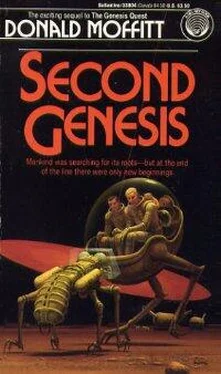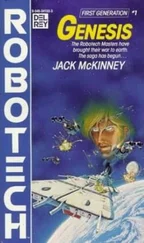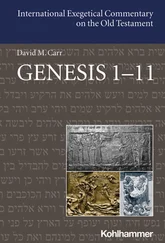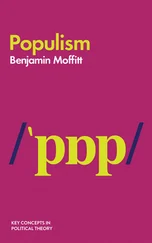The holo display showed the event graphically. A sphere of twinkling dots was growing outward from Sol, toward the orange barriers that fenced it in on either side. The arm swept inexorably onward, slicing the ball of lights thinner and thinner until nothing was left.
“Scrubbed clean,” Jao said. “The universe is safe from dragonflies.”
The assembly went wild. Jao could not have made himself heard even if he had wanted to go on. People were weeping, laughing, embracing—showing every form of emotion. Jao stood watching for long minutes, hands on hips, then left the platform. Jun Davd took his place and waited.
People crowded around Jao as he walked down the aisle, clapping him on the back, grabbing his arm, jabbering at him. He nodded pleasantly at everyone, mouthed words against the din.
He stopped at Bram’s row and crowded in to loom over everybody. “This arm that’s coming,” he said. “It’s grown since the last time around. It’s going to make the Cretaceous extinction look like—what does Marg call them?—a tea party.”
“No chance of the dragonflies surviving as a species?” Bram asked.
Jao shook his head. “Not a chance in a googol. If it doesn’t get the dragonflies, it’ll get what they eat. Evolution will have to start at the bottom again. There’ll be breathing space of twenty-six million years. Time enough for another species to find its destiny.”
Ame was there, leaning over the back of Mim’s chair. She gave Mim a great-great-great-granddaughterly peck. “Maybe that species will be the Cuddlies,” she said. “They’re well established on the diskworlds, and they’ll have a better chance than most of surviving in their shielded burrows. They can wait out the radiation for a few millennia. They’re bright little creatures, well on their way to intelligence, and their weight lies below the twenty-pound danger zone.”
“Oh, Ame,” Mim said. “I hope you’re right.”
On the stage, Jun Davd had succeeded in getting a measure of attention. “It appears that spiral galaxies are not very healthy places to live,” he said. “They tend to have hypermasses ticking away at their centers. Binary black holes splashing into one another and causing core explosions. Leftover black holes from the quasar epoch powering galactic dynamos. Perhaps it might he better to find a smaller, more congenial neighborhood.”
He must have come to the meeting prepared for this, because Jao’s holo of the Milky Way suddenly started to recede into the distance. As it dwindled, the field enlarged to show the fuzzy patches of globular clusters and some small, irregular satellite galaxies. The holo zeroed in on a pair of them.
“The Clouds of Magellan are not too far from home, I think,” Jun Davd said. “The Large Magellanic Cloud is only one hundred fifty light-years away. The Milky Way would fill the sky…”
Loki and Methuselah came scampering over when Bram and Mim entered their quarters. It was past suppertime, and the two Cuddlies had firm ideas about when it was time to be fed.
Loki tried to lead Bram toward the cupboard, but Methuselah pawed at Mim’s legs until she bent over and picked him up. Holding him in her arms, she frowned and said to Bram, “He’s been acting a little funny the last few days. Do you think he’s all right?”
“What do you mean, funny?”
“His appetite’s been off. And I think his nose feels too warm.”
Bram inspected the little beast. Methuselah’s big brown eyes seemed as button-bright as usual. Were they a bit too bright? Bram ruffled the soft fur—brown, salted with gray. Methuselah’s face seemed somehow different.
“Mim,” Bram said. “Do you think his muzzle’s getting darker?”
“Let me see.” She pursed her lips. “Yes, there’s less gray in it. It was almost pure white before. Some of the brown’s coming back. What could make it do that?”
“I don’t know. Original Man had animal doctors…”
“Well, we don’t.” She gave the little creature a hug. “We’re taking him to Doc Pol.”
“Fourth Cuddly I’ve seen this Tenday,” Doc Pol said. “Marg and Orris were in with that spoiled pet of theirs just before you got here. Pesky critter nips a little too hard! Marg was carrying on. Thought her precious Mittens was at death’s door.”
“What was wrong with it?” Mim asked in alarm.
He looked up in annoyance. His irascibility was at odds with his boyish face and slender form. “Wrong with it? Nothing was wrong with it! It was pregnant, that’s all!”
“Oh.”
“Don’t know what the fool woman expected, letting her pet run free like that. All the half-tame Cuddlies living in the branches. She said she thought her precious was too old—past the age of fertility.”
“But that’s right!” Mim said. “She wanted to mate her Mittens with our Loki … oh, about six ship-years ago, and Mittens was past the breeding age even then.”
“That so?” Doc Pol said. He raised a faunlike eyebrow. “Well, let’s have a look at your little feller.”
For the next ten minutes, Doc Pol poked, prodded, tapped the tiny chest, shone lights into eyes and ears, managed to insert a thermometer abaft the twitching tail, and peered down the pink throat while Methuselah tried earnestly to bite him.
At last he released the Cuddly, who immediately settled in Mim’s arms, clinging with all his might.
“Well?” Bram said.
“He’s picked up a virus,” Doc Pol said.
“Virus? How? What kind of virus? What could he have possibly caught?”
Doc Pol fiddled with his instruments and took his time about replying.
“Immortality,” he said. “There’s a lot of it going around.”
Ame set it up. “Molecular taxonomy,” she said. “The whole department’s pitching in. We’ve got a team working on amino acid sequencing, another working on protein sequencing, and Doc Pol and his apprentices are helping us to measure the antigenic distances between humans, Cuddlies, and a number of primates whose serum albumin we’ve been able to clone from our diskworld biological samples. And, of course, we’re doing extensive comparative anatomy studies.”
“All of a sudden we’re getting a rash of similar cases reported by Cuddly owners,” Bram said. “Some of the children may have spread it after getting their booster shots. Or it may have been going on a long time. People today aren’t really very familiar with the concept of aging. Oh, they understand it intellectually. But it wouldn’t occur to a lot of them to wonder why their pets aren’t getting old.”
Ame bit her lip. “We really should have gotten around to a study of the Cuddlies sooner. But there was just so much for us to wade through in all those records and the frozen molecular zoo we took away with us from the diskworld…”
“How soon?” Bram asked.
“I’ll have an answer for you in a few days.”
“The Cuddlies are Homo post-sapiens,” Ame announced.
A wave of shock went through the chamber. A reporter for the datanet said, “You mean these little animals are Original Man?”
“We believe they’re a divergent species growing out of the extinct Homo sapiens branch, yes,” Ame said.
An uproar started in the chamber. Ame looked helplessly around at her colleagues for support. She hadn’t expected a mob this size when she had told datanet that she had a modest announcement to make. The announcement had had to be moved from the department’s conference room to a small adjacent auditorium.
“What does that mean?” somebody demanded.
Ame faced them squarely. “It means that during the time of extinction, whatever Homo sapiens stock briefly survived on earth underwent adaptive radiation. Man himself would not have survived long, but a number of subbranches might have evolved to fit different ecological niches. The Earth would have become a very different place. Size and brainpower might not have been survival characteristics. Size certainly wasn’t. There might have been back-mutations for such characteristics as tails and fur, night vision. The ancestors of the Cuddlies were among those divergent species. They were small, quick, burrowing omnivores. We know the rat-people considered them pests and tried to exterminate them. But they spread to the diskworlds as stowaways on spaceships, got into the granaries, learned to survive in pockets of trapped air. And they had millions of years after that to evolve into their present form—able to live in vacuum, to do without breathing for long periods of time, like Earth’s extinct sea mammals.” She shook her head ruefully. “It was obvious that the Cuddlies were terrestroid mammals, but we failed to take the step further that would have identified them as primates.”
Читать дальше












